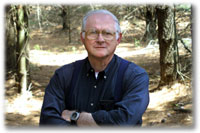Saturday, June 01, 2019
Memorial Day Garden Report
For my vegetable gardening friends, my Memorial Day report. Where you garden surely makes a difference, especially in states like Wisconsin where the growing season varies greatly from south to north in the state. What you read here might be quiet different from other places.
My garden is in Waushara County, not really north, but not south either. We’ve gardened here for more than 50 years, some years great, some years so-so, and some years not so good. Never knowing what to expect contributes to the fun of gardening.
Everything is a bit late this year. Our first planting was April 28. On that date we planted early potatoes, late potatoes, carrots, radishes, peas, kale, onions, lettuce and beets. All are up and growing, except for the late potatoes, which, as my dad would say, are “cracking the ground,” meaning they were on their way but not as far as long as the early potatoes.
On May 19, Steve and Natasha set out broccoli and cabbage plants and with cool, wet weather they are doing well.
On Memorial Day weekend, (May 26) we planted sweet corn of several types, snap beans, zucchini, cucumbers, pumpkins, late squash and 25 tomato plants that I started from seed. With cool weather, the tomato plants are a bit scrawny, but they now have lots of room to grow. My dad always said that a garden should have some flowers, so we planted a short row of zinnias and a couple rows of sunflowers.
We have a bluebird house a few feet from the garden. As we worked in the garden a pair of blue birds were busy flying in and out of the house. They, along with gardeners also know that spring has arrived.
THE OLD-TIMER SAYS: What would life be without a garden?
ANNOUNCEMENT: My “Telling Your Story” Writing Class at The Clearing in Door County is set for July 19, 9-4. Call 920-854-4880 if you are interested in attending. The class usually fills, so you may want to reserve a spot sooner than later.
UPCOMING EVENTS:
June 7, 6:00 p.m. Weyauwega-Fremont Performing Arts Center, 500 E. Ann St. Weyauwega. Presentation: Wisconsin Agriculture: A History. No charge, all welcome.
BOOKS FOR SUMMER READING;
Want a book to read this summer? Here are two of my recent novels to consider.
Each deals with a contemporary rural issue. Purchase from your local bookstore, or buy them from the Friends of the Patterson Memorial Library in Wild Rose—a fundraiser for them. Phone: 920-622-3835 for prices and ordering.
Patterson Memorial Library
500 Division Street
Wild Rose, WI 54984
barnard@wildroselibrary.
www.wildroselibrary.org
In a Pickle
“In a Pickle, is a many-layered pleasure delivered by a master craftsman who is also, like his contemporaries Studs Terkel and Howard Zinn, a passionate student of the people’s history. As Apps engages us in the coming-of-age saga of the pickle factory manager Andy Meyer, his In a Pickle is at once a lesson in rural Wisconsin sociology, a quietly scathing indictment of factory farming, and a great read.”—John Galligan. .
Cranberry Red
.From Booklist:
In the fourth book in the Ames County series, Ben Wesley, an agricultural agent for the past two decades, is suddenly out of work when funding for his program is cut. He’s immediately offered a job with Osborne University, doing pretty much what he did before but charging people for his services. This makes him a little uncomfortable but not nearly as much as Cranberry Red, a new chemical developed by the university’s researchers that could have spectacular benefits for people with heart disease or Alzheimer’s. When it begins to appear that Cranberry Red has some pretty nasty side effects, Ben is faced with a difficult choice: keep his job and find a way to protect the community, or blow the lid off the secret and risk everything. Apps approaches his familiar themes (honor, the importance of community, the increasing threat to traditional farming) from a new angle, focusing on the issue of genetic modification and its impact on an entire way of life. As usual, he creates compelling characters and places them in a vividly realized setting. –David Pitt
Subscribe to:
Post Comments (Atom)


No comments:
Post a Comment